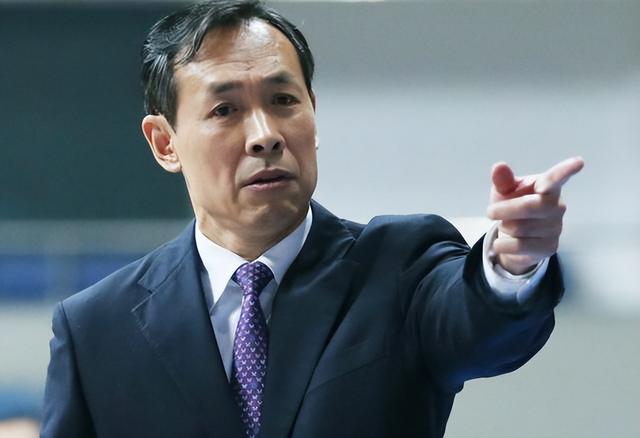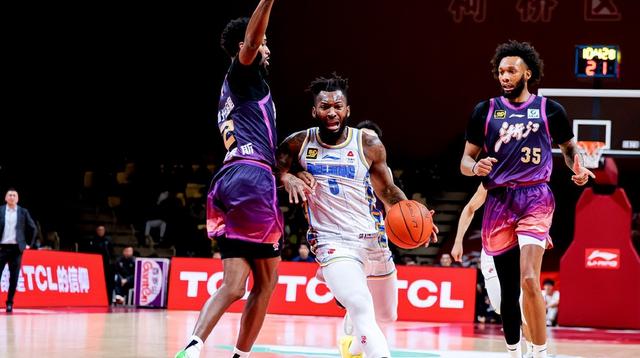Beijing Shougang has faced a challenging two-week period, welcoming three consecutive away games against Zhejiang's top teams: Zhejiang Guangsha, Ningbo, and Zhejiang Chouzhou. Among these, Ningbo is the league's bottom team, while the other two are at the top of the league, with Zhejiang Guangsha firmly holding the top spot. As expected, Beijing Shougang only managed to narrowly defeat Ningbo in their three matches, suffering crushing defeats in the other two. Against Zhejiang Guangsha, they once led by 16 points but collapsed in the final quarter, allowing Guangsha to level the score within just 2-3 minutes. From that point on, Beijing Shougang had no chance of recovery, experiencing a 17-point comeback by Zhejiang Guangsha even with Zhou Qi on the court.

Arriving at Zhejiang Chouzhou, many might have thought Beijing had a chance, especially with injuries to key Zhejiang players like Yu Jiaho and Wu Qian. It was anticipated that Beijing Shougang, with Zhou Qi, could easily overcome Zhejiang Chouzhou. However, Zhou Qi unexpectedly announced a high fever before the game, ruling him out. Since joining Beijing, Zhou Qi has spent an estimated four-fifths of his time dealing with illnesses, from back injuries to influenza, and after just two games, he was again struck down with a high fever. Zhou Qi's absence eliminated Beijing's remaining advantage, shattering the hopes of Beijing fans who had clung to the possibility of winning the match.

With key players such as Zeng Fanbo, Qiu Tian, and Chen Yingjun unable to participate due to illness, Xu Limin opted to call up young players Wen Song, Fan Yiming, and Sun Yahui. Due to the unavailability of Qiu Tian and Zhou Qi, center Fan Ziming, who had been largely overlooked by Xu Limin throughout the season, finally became the absolute mainstay in the paint, an indispensable figure. In this situation, however, Fan Ziming became the biggest variable in Beijing Shougang's losses. Despite being a top-salaried player, Xu Limin had previously only given Fan Ziming limited playing time, sometimes none at all, or only during garbage time, which puzzled many. This game presented Fan Ziming with an opportunity to prove himself, but it turned out to be a swan song for his quest for more playing time.

The game afforded Fan Ziming significant playing time, but in his 25 minutes on the court, he shot a dismal 2 out of 13 for a 16% shooting percentage. Astonishingly, as a big man, he was blocked three times by the opposition, including one by a smaller player. Moreover, facing a Zhejiang Chouzhou team without a center, Fan Ziming had numerous opportunities under the basket but failed to capitalize on any of them, missing at least five open layups. Xu Limin could no longer tolerate this performance and chose not to use Fan Ziming in the final quarter, even opting to play without a forward. Perhaps the most accurate decision Xu Limin made since joining Beijing Shougang was to prefer using the brutish Qiu Tian over the top-salaried Fan Ziming.

The oddities of Beijing Shougang extend beyond Zhou Qi and Fan Ziming. Despite the tight personnel situation, Xu Limin insisted on a 12-man rotation, which is not unreasonable. However, this rotation did not provide Beijing Shougang with an energy advantage in the fourth quarter; instead, they were dragged along by Zhejiang Chouzhou, who rotated only 7-8 players, with a once-tied score widening to over 15 points in the fourth quarter. Nonetheless, the 12-man rotation did yield some benefits, giving young players the chance to play. Fan Yiming, who has been with the team for years, finally got the opportunity to play for 15 minutes, showcasing his positive contributions on both offense and defense, earning him 2 points and 8 rebounds, including at least 4 offensive rebounds. Wen Song, a Tsinghua University player making his debut, displayed the fearlessness of a newcomer, attempting a long-range three-pointer on his first touch of the ball. Although he missed, his second three-pointer found its mark, reducing Beijing Shougang's deficit to around 10 points.

Another peculiarity is evident in both matches against Zhejiang Guangsha and Zhejiang Chouzhou. When trailing by more than ten points within the last five minutes, there should still be a chance to turn the game around, particularly against Zhejiang Chouzhou, where Beijing Shougang was down by 12 points with four minutes left. Yet, Xu Limin chose to substitute all his main players, effectively surrendering. This decision alone is baffling, but what is even more astonishing is Xu Limin's post-match statement that the team's mental state was excellent and the players performed very well.

The consensus view is that Beijing Shougang's luxurious lineup has two major weaknesses: firstly, Xu Limin's on-site command and tactical arrangements. In this game, Beijing Shougang grabbed 69 rebounds, with 28 on the offensive end, yet they still lost. This outcome is directly related to Xu Limin's offensive arrangements, which cannot always be attributed to Beijing Shougang's cold shooting. Secondly, there are the three foreign players of Beijing. In this match, Zhejiang Chouzhou's York scored an impressive 31 points alone, while Beijing Shougang's three foreign players combined for only 27 points. Solomon, as a workhorse, scored 10 points and 18 rebounds, which is considered satisfactory, but Jieman and Omore contributed only 17 points between them, which is unacceptable. Even in the final quarter, Jieman showed signs of battle fatigue, passing the ball to his teammates as soon as he received it in the crucial scoring moments, unwilling to dribble even once. Despite this, Xu Limin remains unabashed, insisting that the team's mental state and atmosphere are good.